Teaching the Holocaust can often seem like difficult task given the serious nature of the topic, the challenges of contextualizing this key event, and the overwhelming amount of information available online. To help with these challenges we have curated a list of valuable resources available to help you and your students understand the Holocaust. In the links below, you will find teaching recommendations and resources that will help you determine the right approach to teaching the Holocaust and online repositories of quality multimedia and textual resources that are appropriate to use with students.
- Recommendations When Teaching the Holocaust
- Lessons for Teaching the Holocaust
- Digital Resources for Teaching the Holocaust
- Literature for Teaching the Holocaust
The South Carolina Council on the Holocaust offers regular professional development programming to assist teachers in developing their units and lessons on the Holocaust. If you are interested in joining our educator listserv to learn more about the available opportunities, please contact our program assistant Elizabeth Stiles at education@scholocaustcouncil.org.
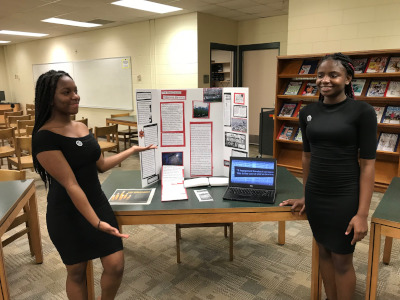
The Council provides mini-grants of up to $1000 for educators and community leaders working to expand Holocaust education throughout their classrooms and communities. The aims of the grant projects must coincide with the mission of the Council to commemorate SC survivors and concentration camp liberators and to promote Holocaust education. The most successful grant applications are those for Holocaust books or materials, school or community commemoration programs, guest speakers, teacher professional development, or awareness-raising events.
K-12 South Carolina educators in all subjects are encouraged to apply. The Council will also consider grant applications from organizations and university programs, but these funds are limited.
The grant process involves three interconnected steps:
- Review the Grant Application Guidance Sheet
- Fill out and submit the Grant Application
- Complete the Final Report within six weeks of the event’s completion
IIf you have questions after reviewing the Guidance Sheet and Grant Application documents, please don’t hesitate to contact the Council for advice.
We look forward to supporting your projects and thank you for your dedication to Holocaust education in South Carolina!
There are many resources to help support the teaching and learning of the Holocaust throughout the state. Most are done with SC educational standards in mind.
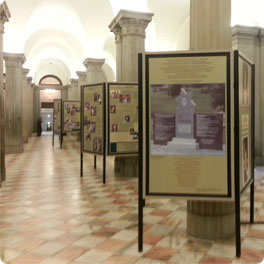
THE COLUMBIA HOLOCAUST EDUCATION COMMISSION (CHEC)
The Columbia Holocaust Education Commission operates through the Columbia Jewish Federation. It was established in June 2001 to design and oversee the Holocaust memorial located in Memorial park in Columbia, SC. The Commission provides a traveling Holocaust exhibition, “Holocaust Remembered,” which can be booked by schools and organizations throughout the state free of charge. They also provide grants to educators and organizations throughout the state. For more information, contact Cheryl Nail, 803.787.2023.
THE ANNE FRANK PARTNERSHIP AT THE COLLEGE OF EDUCATION, UNIVERSITY OF SOUTH CAROLINA
Through the School of Education at the University of South Carolina, the Anne Frank House in Amsterdam offers educators in the South three different traveling exhibitions as well as workshop options that can be conducted with students at your school. The exhibitions and workshops focus on the history of Anne Frank during the Holocaust, as well as important themes, such as human rights.
Available exhibitions and workshops
For more information, Contact: Morgan Bailey, Traveling Exhibition Manager, annefranksc@gmail.com.
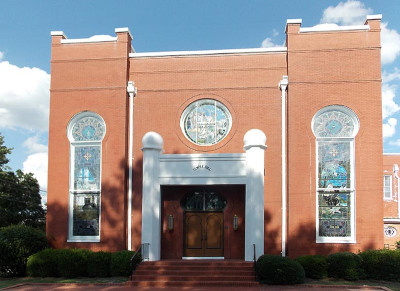
TEMPLE SINAI JEWISH HISTORY CENTER
The Temple Sinai Jewish History Center in Sumter, SC opened to the public on June 2, 2018. The Museum is housed within a working synagogue and it showcases the history and life of Jewish community members in Sumter and beyond. It includes a section devoted to the Holocaust. The Museum is open to the public and invites schools and students to visit them to learn more about Jewish life and culture and the impact of the Holocaust in a local context. For more information, contact Annie Rivers, 803-775-0908, arivers@sumtercountymuseum.org
HISTORIC COLUMBIA
Historic Columbia offers a variety of education programs for student, youth groups, and adults about Jewish life in the state. They have partnered with the College of Charleston’s Jewish Heritage Collection, The Jewish Community Center and Columbia Jewish Federation, the Jewish Historical Society of South Carolina, and Richland Library, to establish the Columbia Jewish Heritage Initiative. This initiative documents, provides access to, and promotes awareness of local Jewish history. They offer Jewish heritage walking tours, oral testimonies of local Jewish residents,traveling trunks with information about the effects of WWII on the homefront (LINK), and a blog about Southern Jewish food, Kugel and Collards.
For more information, contact their education department, 803.252.1770 x 26, education@historiccolumbia.org.
ETV and KNOWITALL.COM
Trace the events of the Holocaust through the testimony of survivors who settled in South Carolina in the Seared Souls: South Carolina Voices on the Holocaust oral testimony collection compiled through a partnership with ETV, SCCH, and the SC Department of Education. Interviews are combined with dramatic archival footage for a powerful and moving record of the inhumanity that was experienced during the Holocaust. Produced, written, and directed by Rich Panter, this program was nominated for a regional Emmy award.
CHARLESTON JEWISH FEDERATION REMEMBER PROGRAM
The CJF Remember Program serves the Charleston area with a number of resources and events. They offer teacher training workshops, a speakers bureau with local survivors (link), an annual arts and literature competition for middle and high school students (link), and resources for education. For more information contact Erin Boynton, erinb@jewishcharleston.org.
THE JEWISH HISTORICAL SOCIETY OF SOUTH CAROLINA
The Historical Society was formally inaugurated to encourage the collection, study, and interpretation of South Carolina Jewish history and to increase awareness of that heritage among Jews and non-Jews. JHSSC meets twice a year in different cities and towns across South Carolina, publishes a biannual magazine, and maintains an active website. For more information contact 843-953-3918, jhssc@cofc.edu
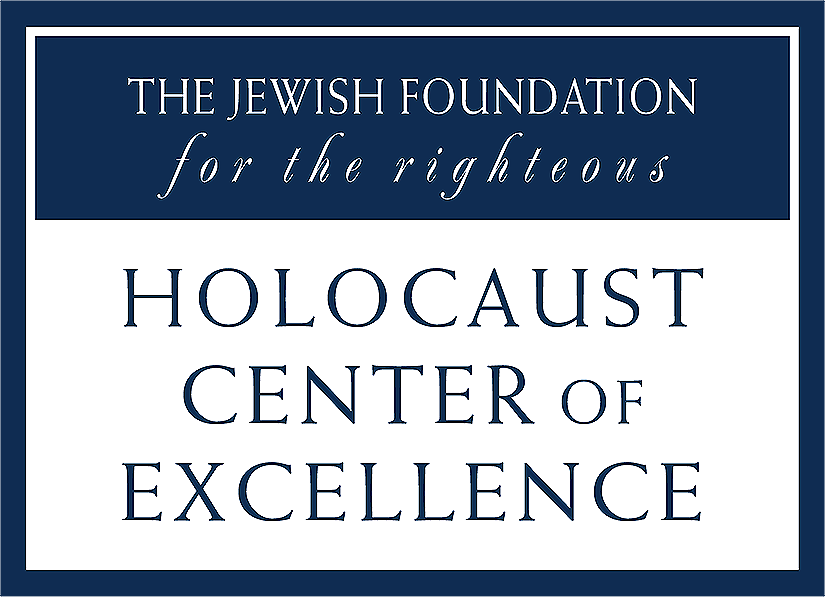
In order to have an impact on Holocaust education on a national scale, the JFR established the Holocaust Centers of Excellence Program in the spring of 2000. Through the program, the JFR has formed partnerships with selected Holocaust centers across the country, and in so doing, has invested in the disparate communities in which the centers are located. There are currently thirteen participating centers. They are listed below. Pictured here are several of the center directors at the 2004 annual conference of the Association of Holocaust Organizations.
The Holocaust Centers of Excellence Program is a partnership between the JFR and the participating Holocaust center. In agreeing to participate in the program, each center receives two initial scholarships for the Summer Institute for Teachers and commits to nominating two educators each year thereafter. Additionally, each center agrees to sponsor Holocaust teacher education programs that draw on JFR materials and training models. The centers make a commitment to teach the Holocaust in as comprehensive a manner as possible and to include the subject of rescue. Teachers who attend JFR programs - known as Alfred Lerner Fellows - form a cadre of educators for each local center as well as for the JFR.
The publication by JFR Voices and Views and the poster series on Rescue are currently being used by several schools in SC. For more info contact Emily Taylor (etaylor@lexington4.net).
Summer Institue for Teachers
The JFR Summer Institute for Teachers examines the Holocaust from the precedents found in the history of antisemitism, to the rise of the Nazi party, the machinery of death, rescue, through to the aftermath of the Holocaust. The first Summer Institute for Teachers was held at Clark University in June 2000. Since June 2001, the Institute has been held at Columbia University in New York City during the last week in June. The program is a high-level, intensive academic seminar in which participants are exposed to Holocaust survivors such as Roman Kent and to noted Holocaust scholars including, Volker Berghahn, Debórah Dwork, Henry Feingold, Jeffrey Burds, Peter Hayes, Samuel Kassow, Harry Reicher, Nechama Tec, and Robert Jan van Pelt. The Institute is designed to allow participants to meet in small groups following each lecture. These small groups enable participants to share teaching concepts and to develop approaches to introducing the subject matter to their students.
All participants selected to attend the JFR Summer Institute for Teachers are known as Alfred Lerner Fellows and must be nominated by one of the centers in our Holocaust Centers of Excellence Program. In order to participate in other JFR educational programs, a teacher must be an Alfred Lerner Fellow and have remained involved with their local Holocaust center. While there is a participant fee, the JFR provides each Lerner Fellow with a significant scholarship to attend the Summer Institute for Teachers. The program is a residential program – all participants stay on the Columbia University campus. Participants are expected to complete required readings prior to the start of the program.
The JFR Summer Insitute for Teachers provides the foundation for other JFR education programs, such as the Advanced Seminar and European Study Program in Germany and Poland, which delve deeply into aspects of the Holocaust not covered by other Holocaust education programs.
For more information, please contact us at education@scholocaustcouncil.org.
Visit the JFR Centers of Excellence website - CLICK HERE
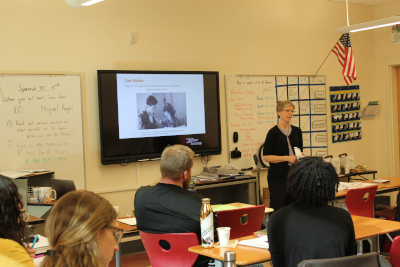
The Council offers free professional development workshops for district or school - wide training days or at other professional conferences or associational gatherings. The focus of these workshops can be tailored to the group, and below you will find four of the more common themes explored in our workshops:
- The foundational aspects of appropriate Holocaust content and sound pedagogical instruction for schools and teachers in accordance with SC educational standards.
- The responses of different American groups to the news of the Holocaust and how this impacts our thinking about the ways people respond to atrocities.
- The use of individual stories and testimonies as a methodological approach to understanding global events in a local context.
- The points of intersection between the universal lessons of the Holocaust and contemporary injustices on a local, national, and global context.
PD offerings are offered at no charge.